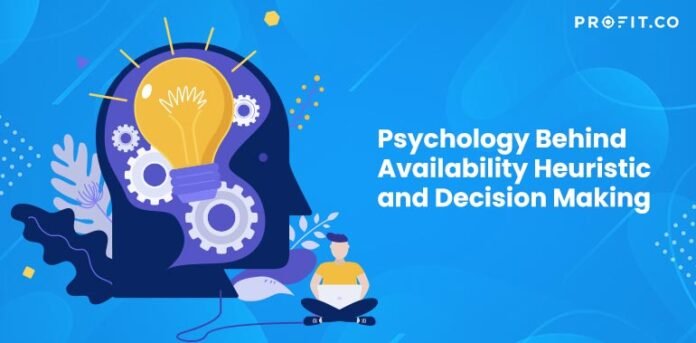Have you ever made a decision that seemed so obvious at the time, only to later wonder what led you to choose that option? We all make decisions every day, from choosing what to eat for breakfast to making important career choices. But have you ever stopped to think about how your brain processes information and influences your decision-making process? In this blog post, we’re going to explore the fascinating world of heuristics – mental shortcuts our brains use to simplify complex decision-making tasks. Understanding these cognitive biases can help us make better decisions and avoid common pitfalls in our everyday lives. Get ready for an eye-opening journey into the power of heuristics!
What is a Heuristic?
Heuristics are fast, automatic processes that help us make decisions quickly and without much thought. They’re helpful when the options we have are clear and the choices we need to make are simple. But heuristics can also lead to bad decisions if they don’t work well or if the situation is too complicated.
Here are five common heuristics:
1. Theavailability heuristic. This principle says that we tend to rely on information that’s immediately available to us. So if we see one option as more available or easier to think about, we might choose it even if it’s not the best option.
2. The sunk cost fallacy. This heuristic says that we’re more likely to keep spending money on something once we’ve already invested a lot in it, even if that thing isn’t working or we no longer believe it will work.
3. The anchoring effect. This phenomenon says that our initial reaction to something — such as a number or an estimate — can influence how we judge other information later on. So if we see someone else’s estimate for how much work a project will take, for example, our own estimate may be influenced by that number even though our own estimations might be more accurate based on our own experience and knowledge of the project.
4. Zeigarnik’s law of memory . This principle says that people tend to remember tasks in progress rather than completed tasks, which can lead to problems when
How are Heuristics Used in Decision Making?
The power of heuristics can be seen in the way that they often lead to better decisions than those made using pure logic. Heuristics are mental shortcuts that allow us to make quick, effective decisions under pressure. They work by taking into account the available information and simplifying it down to a manageable form.
Heuristic decision making is widely used in both business and personal life. For example, when deciding whether or not to buy a product, we might use a heuristic such as “the more I see of this product, the more I like it”. This heuristic is based on our tendency to remember things we like and forget things we don’t like. We use heuristics throughout our lives without even realizing it – for instance, when judging whether or not to go out with someone, we might use the heuristic “the more time I spend alone with this person, the less likely it is that something bad will happen”.
Heuristics can be helpful when making decisions because they allow us to process information quickly and make informed decisions based on what we know at that moment. However, heuristics can also lead to mistakes if we rely on them too much – for example, if we use the heuristic “the more people who agree with me, the better my decision will be”, then we might avoid dissenting opinions even if they would actually improve our decision.
Overall, heuristics
Why are Heuristics Appreciated in Decision Making?
Heuristics are a type of cognitive shortcut that allow us to make decisions faster and more efficiently. They’re often overlooked, but they have a lot of power when it comes to making decisions.
Here’s why heuristics are so valuable:
1. Heuristics reduce the cognitive load on our brains.
2. Heuristics work quickly and automatically, so we don’t have to spend time thinking about the decision.
3. Heuristics can help us avoid irrational decisions and biases.
4. Heuristics can help us make better choices in difficult situations.
How can Heuristics Be Defeated in Decision Making?
Heuristics are mental shortcuts that allow us to make decisions more quickly and efficiently. While heuristics can be helpful, they can also lead to inaccurate or harmful decisions if not used appropriately. Here are four ways heuristics can be defeated in decision making:
1. Biased assimilation: When we see a lot of similar things, we tend to think those things are automatically true. This is called the bandwagon effect and it can lead us to make wrong assumptions based on previous experiences.
2. Divergent thinking: When we are presented with a variety of options, our brain will often try to come up with the best solution. However, this process can sometimes produce creative but impractical solutions.
3. The sunk cost fallacy: We tend to hold onto investments or ideas even if they’re no longer profitable or wise because we’ve already invested so much into them. This puts us at risk of making bad decisions because we’re unwilling to change course even if it means losing money so far.
4. The Planning Fallacy: We overestimate how much time and effort we’ll need to complete a task and underestimate the flexibility of our schedule or available resources
